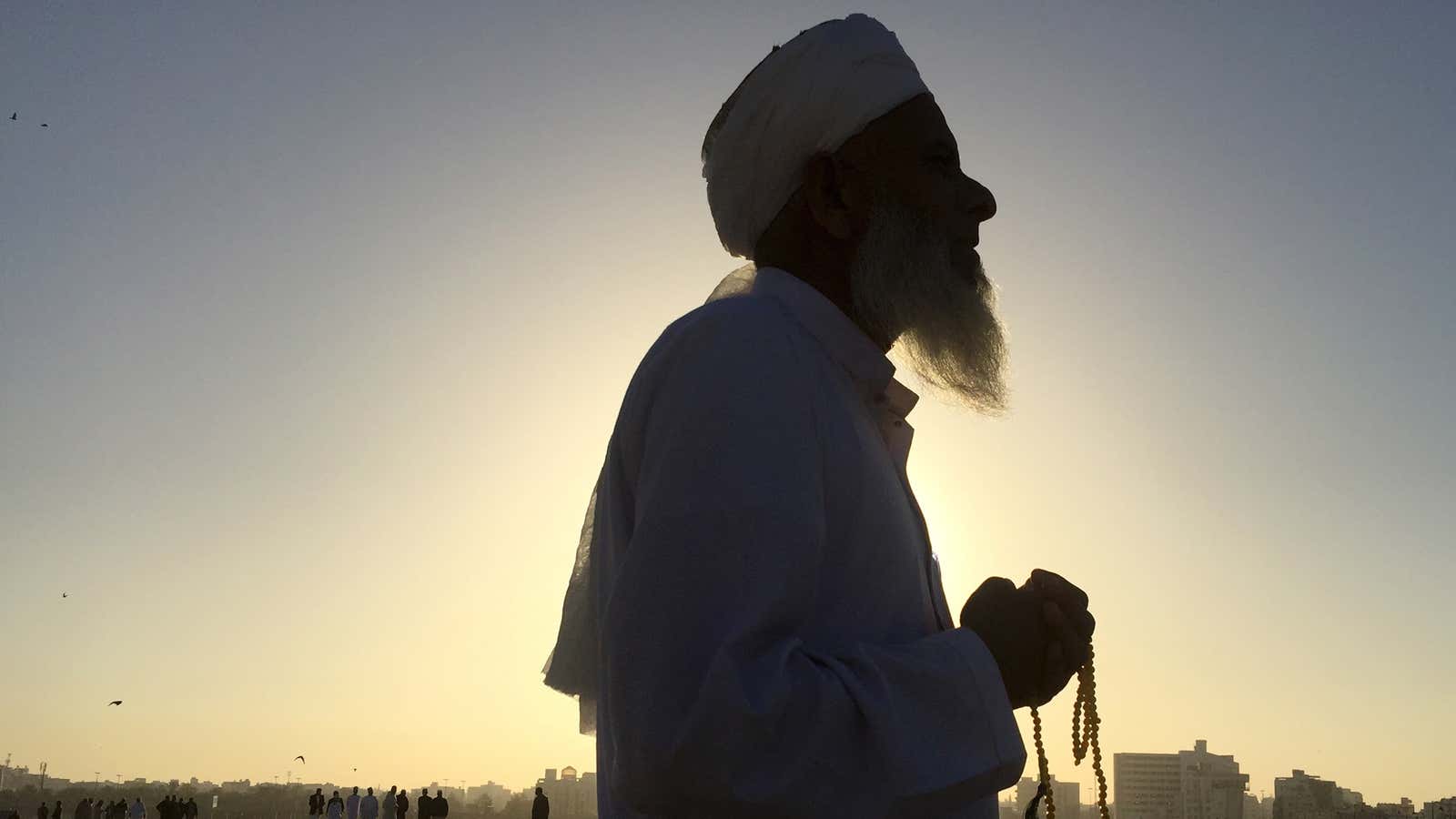On Monday, July 4, a 26-year-old Saudi man killed himself and four others outside the sacred mosque of the Prophet Muhammed, the second holiest site for Muslims. The suspect, Naer Muslim Hamad, was intercepted while cutting through a vacant parking lot in Medina, Saudi Arabia. Cornered, he detonated an explosives belt, killing the four Saudi security officers and injuring five others. It is unknown if the assailant targeted the security installation guarding the mosque or the mosque and its attendees.
The attack came on the heels of a series of attacks across the Muslim world during the month of Ramadan, including a truck bomb in Baghdad that killed nearly 300 people and multiple attacks in Bangladesh. Whatever the intended effects of these attacks, be it recruitment, political delegitimization, or sheer terror, ISIL—widely believed to have orchestrated the attacks—may have miscalculated in Medina.
Muslims consider Medina sacred due to is historic significance and religious symbolism. During his lifetime, Muhammad outlined Medina’s sacred location, calling it a “sanctuary.” All those who commit crimes will be cursed, he noted, especially singling out those who would dare plot against the citizens of Medina with ruin “like salt in water.”
When Muhammad passed away in 632 C.E., his companions buried him in his house, located northeast of his mosque. His mosque and grave became a destination of millions for reflection and prayer. Medina as a whole became an enduring testament to Muhammad’s legacy.
Now, a terrorist has attempted to breach not just the sanctuary of Medina, but its inner-most sanctum: the Prophet’s Mosque itself, with the intent of killing his fellow Muslims. There is no more powerful rebuke to the idea—repeated by some in the West—that Muslims are somehow complicit in the violence of ISIL. Indeed, this attack on Medina dispels several common myths about terrorism and Muslims. We can see clearly that terrorism is in no way inherently “Islamic,” nor does the Muslim community tacitly approve of such acts.
Moreover, it’s important to remember that the majority of terrorist attacks are against Muslims themselves. Whereas terrorist attacks on non-Muslim societies enjoy wall-to-wall news coverage for days at a time, similar attacks in Muslim societies receive far less notice in the West. And yet, the numbers clearly show the exacting toll such violence takes on Muslim communities.
But we may have reached a watershed moment. This year’s bloody Ramadan will almost certainly embolden the resolve of Muslims fighting against extremism the world over. There has already been condemnation from leaders and laity worldwide.
This is not a community that has been broken; far from it. In just days after the blast, people have come out in unprecedented numbers to the Prophet’s mosque for the Eid prayers, the celebration marking the end of Ramadan. Dr. Tahir Wyatt, an American scholar teaching in the Prophet’s mosque, said the general sentiment of attendees was resolute.
“We want to show them that they cannot deter us from practicing our faith, and that we reject everything they represent,” he quoted attendees as saying, “Their actions were never acceptable, but now we want to make it even clearer how reprehensible we think they are.”
Medina remains the embodiment of Muhammad’s prophetic legacy. It enjoys universal reverence, veneration, and inviolability; an attack on Medina is an attack on all Muslims. As one Saudi cleric said about this act: “it could not have been perpetrated by anyone with an atom of belief in his heart.” Now we see clearly just how anti-Islamic ISIL’s campaign of terror really is.
